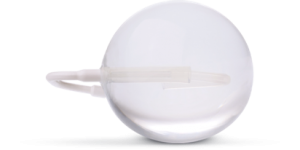Many individuals find it extremely challenging to moderate their body mass index (BMI) and to achieve specific weight-loss goals. While diet and exercise will certainly go a long way, certain medical procedures such as bariatric surgery have become increasingly popular. Are there any reasons not to have bariatric surgery? We will need to thoroughly address several questions.
Is bariatric surgery safe? Who is a candidate for this type of operation? What are the possible side effects of gastric bypass procedures? Do alternative treatments such as the Spatz3 gastric balloon offer more tangible and reliable results? Let us jump right in to appreciate the “big picture”.
A Quick Look at the Types of Bariatric Surgery
Before moving on, it is briefly wise to list the four primary types of bariatric surgery which are currently available:
- Roux-en-Y gastric bypass.
- Sleeve gastrectomy.
- Biliopancreatic diversion with duodenal switch.
- Single-anastomosis duodeno-ileal bypass.
Each of these will involve some type of invasive surgery. For instance, a sleeve gastrectomy reduces the size of the stomach by up to 80 per cent while a single-anastomosis duodeno-ileal bypass essentially re-routes food through a shorter portion of the small intestine; limiting the number of calories that the body can absorb.
Note that this is only a very brief overview of typical surgical techniques. The main point here is that these are all medical procedures and therefore, a certain amount of risk is involved. So, what are some of the risks of bariatric surgery?

Bariatric Surgery Side Effects at a Glance
While this type of procedure can indeed produce impressive results, there are some bariatric surgery complications which need to be mentioned. Some typical examples include:
- Acid reflux.
- Feelings of nausea and/or vomiting.
- Oesophagus dilation.
- You might not be able to eat certain foods.
There are likewise short-term hazards such as an obstruction within the stomach or an infection that could emerge immediately following the surgery.
Furthermore, research has identified several gastric bypass long term effects that could emerge over time. Low blood sugar, malnutrition (due to low nutrient absorption), ulcers, and hernias are all cited here. Others are specific to the type of surgery in question, for instance, the side effects of gastric sleeve surgery may include blood clots, obstructed bowels and the development of gallstones. Some complications 15 years after gastric bypass surgery (or longer) could therefore become permanent and significantly impact your lifestyle. However, note that these vary between patients and some individuals may not experience any of the issues mentioned above.
The Benefits of Bariatric Surgery
To be perfectly clear, the risks outlined above need to be balanced against the benefits of bariatric surgeries such as gastric bypass procedures. Here are some of the primary advantages that patients can expect to enjoy:
- Feelings of hunger will be dramatically reduced.
- Due to limited caloric intake, many individuals will lose a significant amount of weight.
- Bariatric surgery may reduce the risk of developing other complications such as high blood pressure, stroke, heart disease, elevated cholesterol levels, and non-alcoholic fatty liver disease (NAFLD).
- The weight-loss results can be permanent.
Now that we have learned to appreciate the possible risks and the potential advantages of surgical procedures, what about non-surgical alternatives?
Non-Surgical Alternatives to Consider
One of the most recent advancements in the field of weight loss involves the use of gastric balloons. These are often preferred by those who are concerned with reducing bariatric surgery risks as well as anyone who might not be a candidate for invasive procedures due to an existing medical condition.
The main benefit here is the fact that no intensive surgical intervention will be required. On the contrary, a gastric balloon will be inserted into the stomach and this procedure is normally performed on an outpatient basis. Not only does this all but eliminate healing times, but no anaesthesia will be required.
Another very important advantage in regard to a gastric balloon is that it represent a non-permanent form of intervention. In other words, the device can be removed by a trained medical professional at any time when warranted. This is not the case when compared to the long-lasting effects of bariatric surgery.
Affordability is yet another point to highlight from a purely pragmatic perspective. Gastric balloons are the most affordable form of weight loss intervention and this could very well represent the deciding factor for those who are otherwise governed by limited budgets.

Gastric Balloons and Side Effects: Both Sides of the Coin
We once again need to remain entirely objective when discussing this alternative option. There are some possible downsides to a gastric balloon procedure to mention. A handful of examples may include:
- Nausea and cramping.
- Acid reflux.
- Some individuals (approximately ten per cent) will not be able to tolerate the presence of this device.
Gastric balloons may also not have as much of an impact upon your goals when compared to more invasive procedures. Therefore, this option might not be the best option for those who are extremely obese or who need to lose a significant amount of weight. Furthermore, individuals may regain any weight that was lost when the balloon is eventually removed.
What About So-Called "Bypass Pills"?
One recent innovation comes in the form of a pill that is said to mimic the effects of traditional bariatric surgery. These seem to promise an interesting alternative to invasive surgery and yet, a significant amount of research is still required. Others note that the bypass pills side effects (such as abdominal pain, dyspepsia and bloating) might outweigh the possible advantages. Those who have become concerned about the reasons not to have bariatric surgery might very well find such pills a promising alternative. Either way, it will be interesting to see how this technology continues to evolve.
Bariatric Surgery Versus Gastric Balloons: Which is the Best Option?
From an extremely general point of view, bariatric surgery tends to be recommended to individuals who might not have responded to other procedures. The permanent nature of these techniques will likewise appeal to those who are keen to leverage the possible long-term benefits. Still, the risks outlined above must be weighed against the rewards. Is weight loss surgery safe? This depends on the patient, his or her goals and how they physically respond to the treatment itself.
This is also why a growing number of consumers have chosen to examine the potential results attributed to the Spatz3 adjustable gastric balloon. The semi-permanent nature of this device alongside the fact that no type of surgical intervention is required both open up a wide range of possibilities for those who have been less than satisfied with their ongoing weight loss journey. To learn more about the reasons not to have bariatric surgery or why gastric balloons represent a powerful option, always make it a point to speak with a qualified medical professional. After all, it pays to appreciate the options at your disposal!


